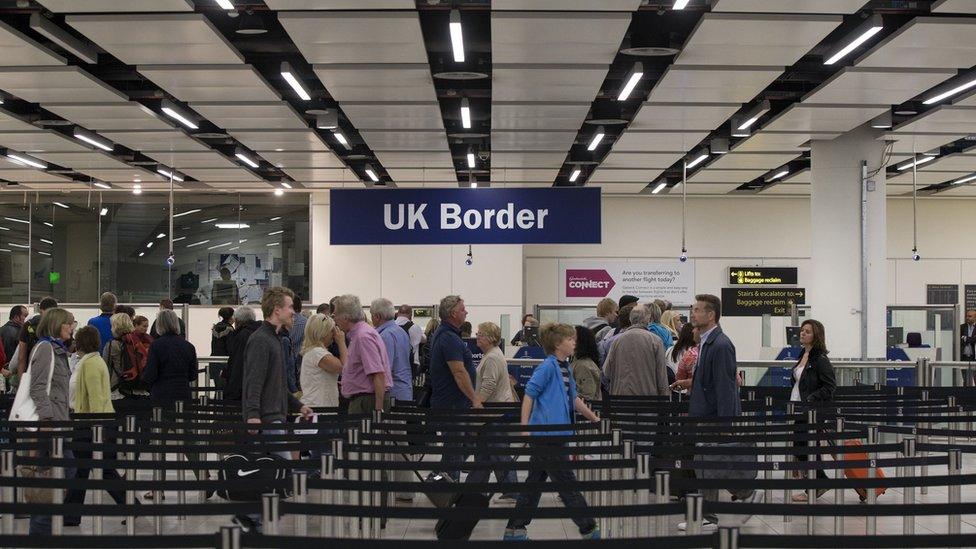Home Office citizenship fees 'scandalous'
- Published
Samson Adeola, 18, from Walthamstow, had to borrow money to pay to register as a British citizen last year
The Home Office has been criticised for making more than £800m from nationality services over the past six years.
Young people who have citizenship rights - including thousands born in the UK - have to pay up to £1,000 to register formally as citizens.
Campaigners claim the fees, which they say many youngsters cannot afford, are a "terrible injustice" and "nothing short of a scandal".
The Home Office says the fees are fair and fund the wider immigration system.

What is registration?
Nationality services include naturalisation fees, registration fees, and other nationality-related payments. Naturalisation is the process of applying to become a British citizen.
Registration is the process where someone who has an existing right to British citizenship - for example, through residency, parentage, or birth - but does not currently hold citizenship, applies to obtain it.
If a young person does not register, and does not otherwise gain settled status, they could risk being subject to immigration controls, despite having grown up British.

Fees have risen since 2011, and the cost of registering two children has more than tripled due to fee increases and the abolition of second child discounts.
Another freedom of information response, external showed registrations cost the Home Office £264 to complete, despite applicants being charged £936 in the 2016-17 financial year.
Samson Adeola, 18, from Walthamstow, had to borrow money to pay his fees last year and said he was angry the Home Office was making so much money.
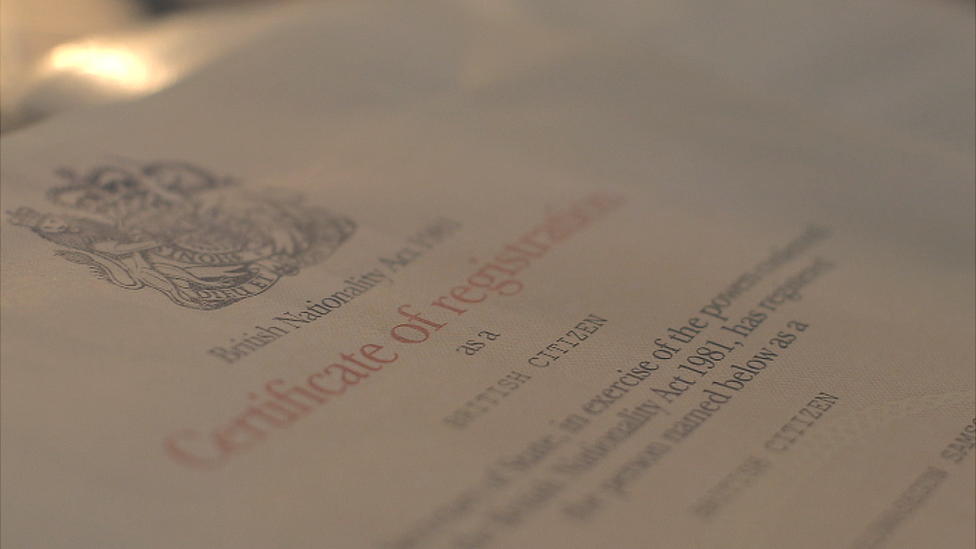
Mr Adeola's family had to pay nearly £1,000 to register him as a citizen
Mr Adeola, who was born in Nigeria, moved to London with his family when he was five and although had rights to citizenship, did not hold it.
He said without it, if he was going on to university, he would be forced to pay significantly higher tuition fees as an international student.
He also said he had missed out on the chance to perform in the opening ceremony of the London 2012 Olympics because he did not have citizenship at the time.
"It was very difficult for my mum, going around finding the money [for the Home Office fees]," he said, adding the family borrowed a "substantial amount" from their local church.
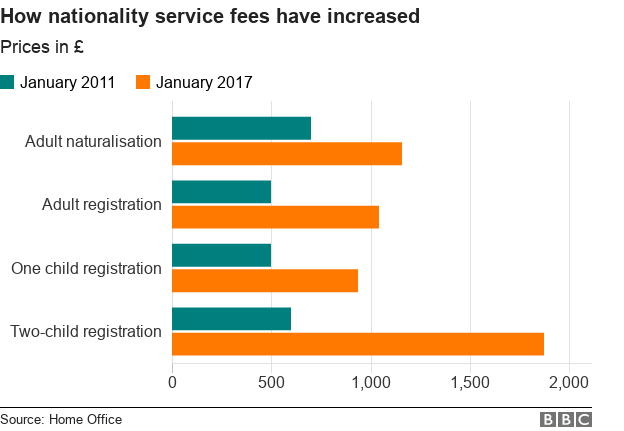
He said the family still had not repaid all the money, and he had taken a job as a pizza delivery boy to contribute.
"Balancing it with schoolwork is difficult - last night I got back really late," he said.
"It's really tiring and draining and it can take your mind off your studies."
He said it was "really upsetting" the fees were so high, "especially for people who can't scrimp and save the money together, and can't put forward an application because of the cost".
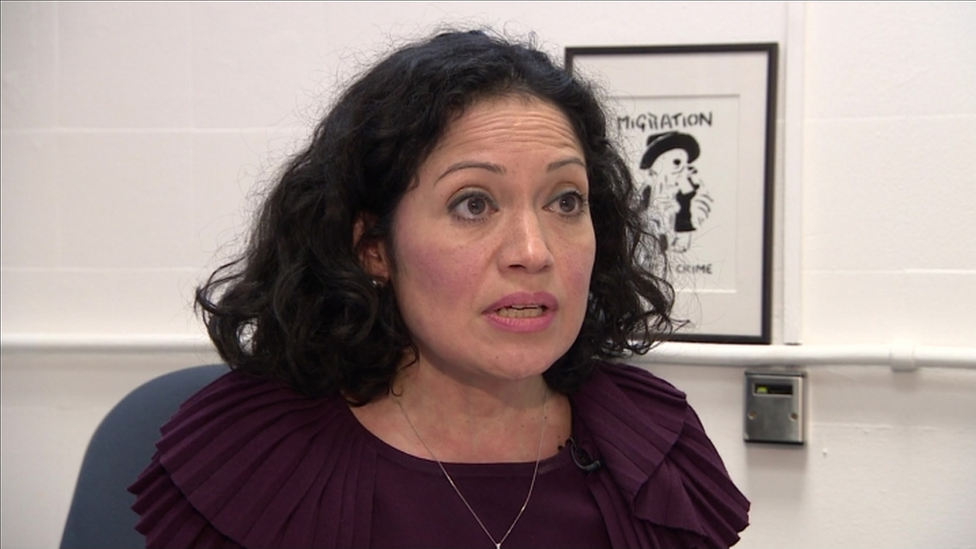
Solange Valdez-Symonds says the Home Office's income from the fees was unjust
The family will also have to pay for each of Mr Adeola's siblings, aged 10 and 15, to register if they want British citizenship, despite the fact the ten-year-old was born in the UK.
Solange Valdez-Symonds, director of the Project for the Registration of Children as British Citizens said: "For the Home Office to be exploiting this to make vast sums of money to spend on its immigration responsibilities is nothing short of a scandal and an especially terrible injustice to those children who cannot afford the Home Office's fees."
A Home Office spokesperson said: "When setting fees, we also consider the benefits that a successful applicant is likely to gain and believe that it is right that those who use and benefit directly from the system make an appropriate contribution towards meeting associated costs.
"British nationality applications are not mandatory and many individuals decide not to apply."
- Published13 February 2018
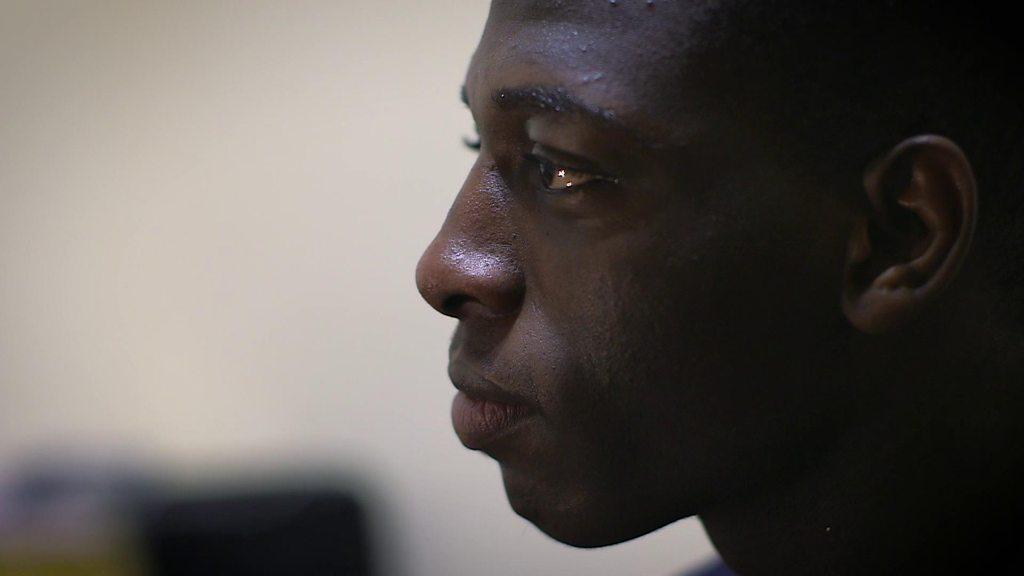
- Published11 January 2017
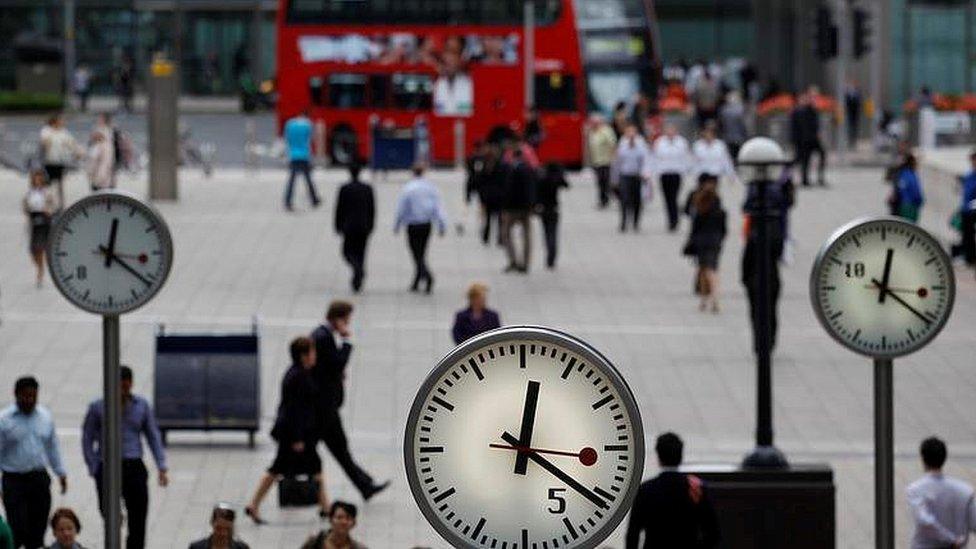
- Published3 October 2017
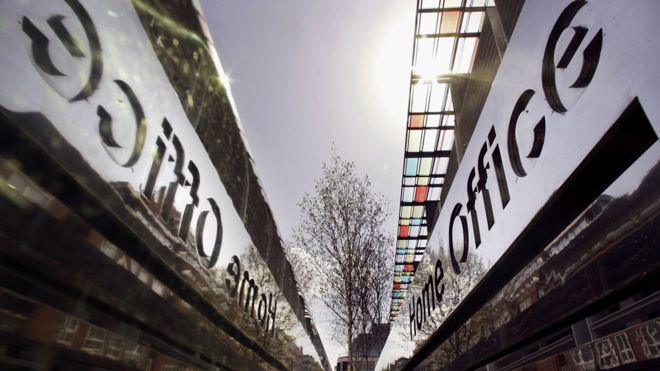
- Published31 May 2017
